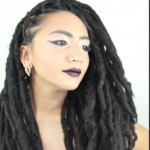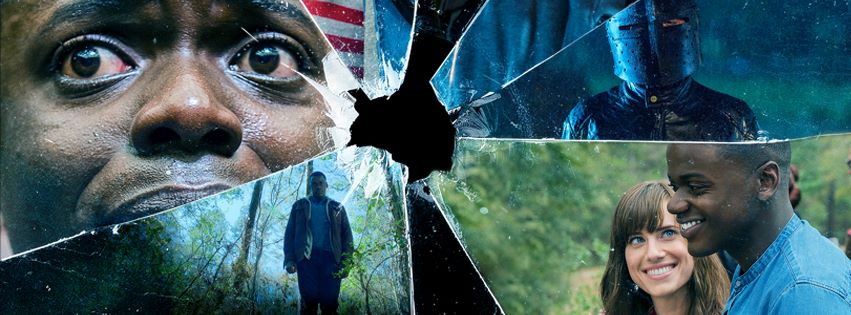by Alima Chowdhury – Follow @browngirlmag
I couldn’t emotionally handle “Get Out.” Let me try to get my words out as best as I can. I am so ashamed, embarrassed, and hurt. I am ashamed to be a bystander. I am ashamed that I was not any better than Rose. Or Missy. Or Dean.
Let me tell you all a story.
I once had the privilege of falling in love with the most handsome, smartest, and most importantly, kindest human being in the world. He also happened to be a black man in America who took on a brave task: dating a Bengali urban-American whose family was deeply infected with colonialism and hypocrisy.
He fell in love with a girl whose father returned home from a district 75 public school every afternoon and expressed his hurt at comments from fellow white teachers about his accent, and that the insinuation that he, therefore, lacked intelligence. In return, he simultaneously questioned the merits and accomplishments of his Latino and black students with heavy apprehension. See, he is from a country where TV shows have white doctors and black drug addicts, Chinese shop owners and Latino shoplifters. This is the continuation of white supremacy in the East.
The very first man who owned my heart and taught me how to love, other than my father, of course, the African American man whose name I eagerly moaned, fell in love with a scared little 18-year-old. My mother knew I couldn’t control who I gave my heart to, but she also knew her voice meant absolutely nothing under her own roof.
I remember coming home from high school, scared, excited, and confused. I had an amazing, discrete date with a black man I could not stop kissing for the life of me. It was a Friday night and we were going over to my family’s house. I knew I had to stay silent while all my cousins talked about their boyfriends and crushes, white men with green or blue eyes. They wouldn’t possibly understand what I found in the dark boy who resembled the men their dads told them to stay away from.
So I stayed silent and avoided getting teased. I recall, going home, sobbing to myself.
God, why can’t I be normal and date Bengali men? Is there something wrong with me, God?
I spent the next four years avoiding men, of all races, who tried to court me. But see this isn’t about me. This is about the greatest man on the planet that I fell in love with, and the man I fought off so hard.
When I felt my heart being smothered in my own chest, I cried and spoke to my siblings first. They were just as frightened as I was.
Wait, you think you wanna marry him? You know Bappy will kill you right?
I knew that better than I knew any other fact in the world. So the coward in me reminded the man I loved of this every single, horrendous moment he spent with me.
I am disgusted with myself for being that coward. I spent my whole days in the arms of a gentle, sweet man who never raised his voice at me while I shuddered at my own Baba’s voice. As I heard my dad say,
God take me away before I see my children with African Americans.
I cried in guilt, shame, and anger. By then, my silent mother had died and I was even more alone. I lost hope. I lost the hope to love.
How could I have been such a coward? I made love to an African American behind closed doors, but could not stand by his side to silence my family, the world. I loved so hard, yet I fought so little.
The rhetoric in “Get Out” gave me chills, not simply because of its impressive plot and hefty dialogue, but because I was witnessing my family’s thoughts in action. The Asian American in the film who inquired about the protagonist’s stance on the African American experience was so powerfully symbolic of Asian Americans I know. We are white when our privilege allows us to be, and we are a “disadvantaged group” when we are asked to explain ourselves.
While European Americans fetishized African American features, my family feared and abhorred them. I was carefully reminded that tall, dark arms weren’t meant for hugs and love, and if somehow I ever felt those sentiments for a black man, it was merely my immaturity and lack of wisdom.
So, despite spending three years together, I always held my African-American lover to higher standards, not realizing that I am asking for him to undo long, strategic years of colonialism and White supremacy. I thought if my black lover was more educated, calmer, cooler, I could prove his value to others. I don’t deserve his forgiveness, and I will forever pay the price of my mistake. I lost my first love because I was a coward.
I write this, especially for my Asian sisters, who have reached out to me about similar traumatic experiences. Our love is so much stronger than a social construct, and my loves, I am so sorry so many of us have never heard this in our lives. That love matters, that we should feel butterflies when we kiss our lovers. We must feel love when we make love, not compliance to our ancestors.
I will never forget the words of my first lover:
“Alima, if I could I would paint myself lighter, learn your language, anything. But I will never be enough. I have never felt less to be a black man in America than when I fell in love with you. And I still love you with all my heart.”
The valor in his love was stronger than racism and hate. To love someone who hates you, yet knows not to you, is the bravest deed of all.
I am so ashamed I was a bystander…
 Alima Chowdhury is a 23-year-old, originally from Bangladesh, who grew up in the Bronx, New York for the past 16 years. She studied Speech Pathology and Special Education at Pace University and will be a Secondary English teacher in Ethiopia, June of 2017 through the Peace Corps. In her spare time, she can be found reading poetry, thrifting, or begging her cousins to apply henna on her hands. She is a lover of autonomy, dainty piercings, and cheeky feminism posters.
Alima Chowdhury is a 23-year-old, originally from Bangladesh, who grew up in the Bronx, New York for the past 16 years. She studied Speech Pathology and Special Education at Pace University and will be a Secondary English teacher in Ethiopia, June of 2017 through the Peace Corps. In her spare time, she can be found reading poetry, thrifting, or begging her cousins to apply henna on her hands. She is a lover of autonomy, dainty piercings, and cheeky feminism posters.





